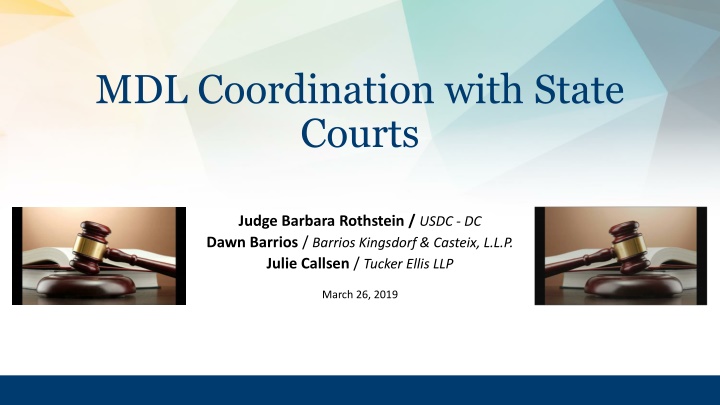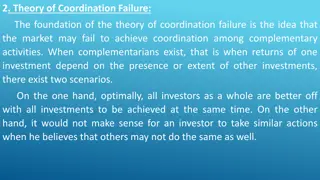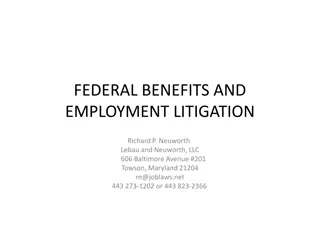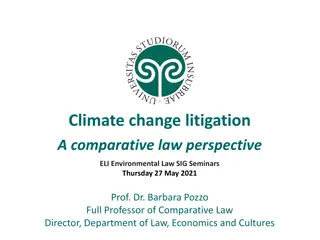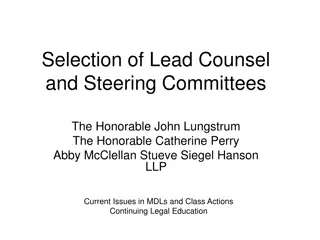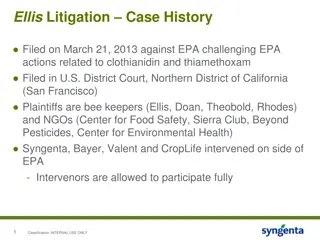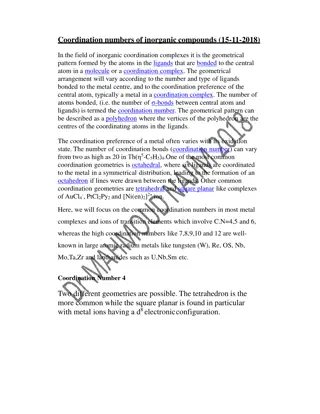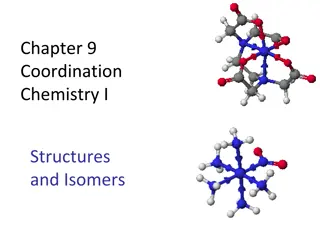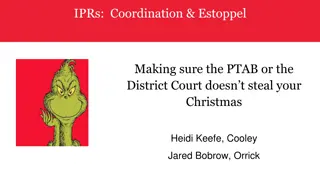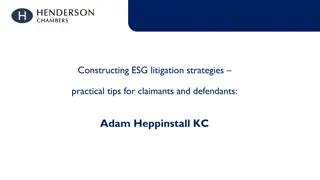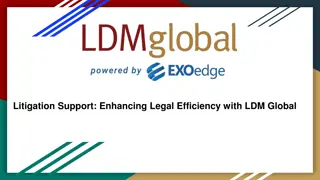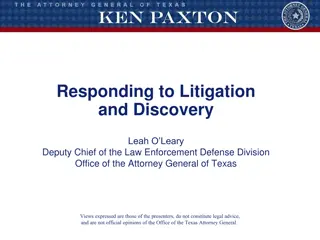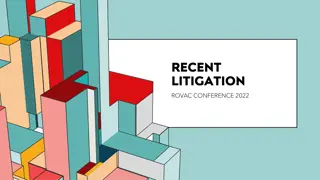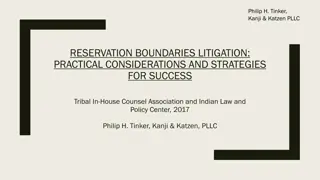Strategies for Effective Coordination in Multijurisdiction Litigation
Learn about the challenges and strategies involved in coordinating multijurisdiction litigation, including the benefits of coordination, differences between state and federal courts, and practical approaches for achieving seamless coordination among various jurisdictions.
Uploaded on Feb 18, 2025 | 2 Views
Download Presentation

Please find below an Image/Link to download the presentation.
The content on the website is provided AS IS for your information and personal use only. It may not be sold, licensed, or shared on other websites without obtaining consent from the author.If you encounter any issues during the download, it is possible that the publisher has removed the file from their server.
You are allowed to download the files provided on this website for personal or commercial use, subject to the condition that they are used lawfully. All files are the property of their respective owners.
The content on the website is provided AS IS for your information and personal use only. It may not be sold, licensed, or shared on other websites without obtaining consent from the author.
E N D
Presentation Transcript
MDL Coordination with State Courts Judge Barbara Rothstein / USDC - DC Dawn Barrios / Barrios Kingsdorf & Casteix, L.L.P. Julie Callsen / Tucker Ellis LLP March 26, 2019
WHY STATE COURT VERSUS FEDERAL COURT Lack of diversity Relinquishing control of your case Perception of black hole Assessment on cases in MDLs, classes, or mass actions in federal court
WHY STATE COURT VERSUS FEDERAL COURT Comparison of status of federal cases and state cases (to get to trial) MDLs take time to be assigned and get organized State cases may be more advanced and may be in discovery
SHOULD THERE BE COORDINATION? Coordination is favored (Manual for Complex Litigation, Fourth (2015) to minimize conflicts that distract from the primary goal of resolving the parties disputes , 20.313 to reduce the costs, delays, and duplication of effort that often stem from such dispersed litigation , 20.313
SHOULD THERE BE COORDINATION? Production of evidence and depositions only done once
CHALLENGES TO COORDINATION Different rules/standards Daubert/Frye Laws vary from state to state Difference in procedures Protective orders Sealing of records
STRATEGIES TO ACHIEVE COORDINATION Judges organize and coordinate with each other Special Master over all cases for certain issues (discovery, settlement) One electronically shared document depository MDL Website State Website
STRATEGIES TO ACHIEVE COORDINATION MDL and state court federal-state liaison counsel Joint pretrial motions and hearings Coordination of trial dates
AUTHORITIES Manual for Complex Litigation (4th Ed.) Manual for Cooperation Between State and Federal Courts, Federal Judicial Center, National Center for State Courts, State Justice Institute JPML Multijurisdiction Litigation https://multijurisdictionlitigation.wordpress.com/ James G. Apple, Paula L. Hannaford, & G. Thomas Munsterman, Manual for Cooperation Between State and Federal Courts (Federal Judicial Center, National Center for State Courts, and State Justice Institute, 1997)*^ Federal Judicial Center & National Center for State Courts, Coordinating Multijurisdiction Litigation: A Pocket Guide for Judges (2013)* Barbara J. Rothstein & Catherine R. Borden, Managing Multidistrict Litigation in Products Liability Cases: A Pocket Guide for Transferee Judges (Federal Judicial Center & Judicial Panel on Multidistrict Litigation, 2011)^
